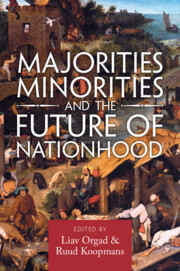Global migration yields political shifts of historical significance, profoundly shaking up world politics as manifested by the European refugee crisis, the Brexit referendum, and throughout the US election. The refugee crisis—which, from a human rights perspective, is first and foremost a crisis of protection—has enhanced the already-existing discussion on justifiable and unjustifiable attempts by nation-states to safeguard their constitutional “essentials” by reinforcing border controls and using selective immigration and citizenship policies. How can liberal states, or a supranational Union formed by such states, welcome immigrants and treat refugees as future denizens without fundamentally changing their constitutional identity, forsaking their liberal tradition, or slipping into populist nationalism? This question is one of the greatest contemporary challenges in constitutional law and theory nowadays.
